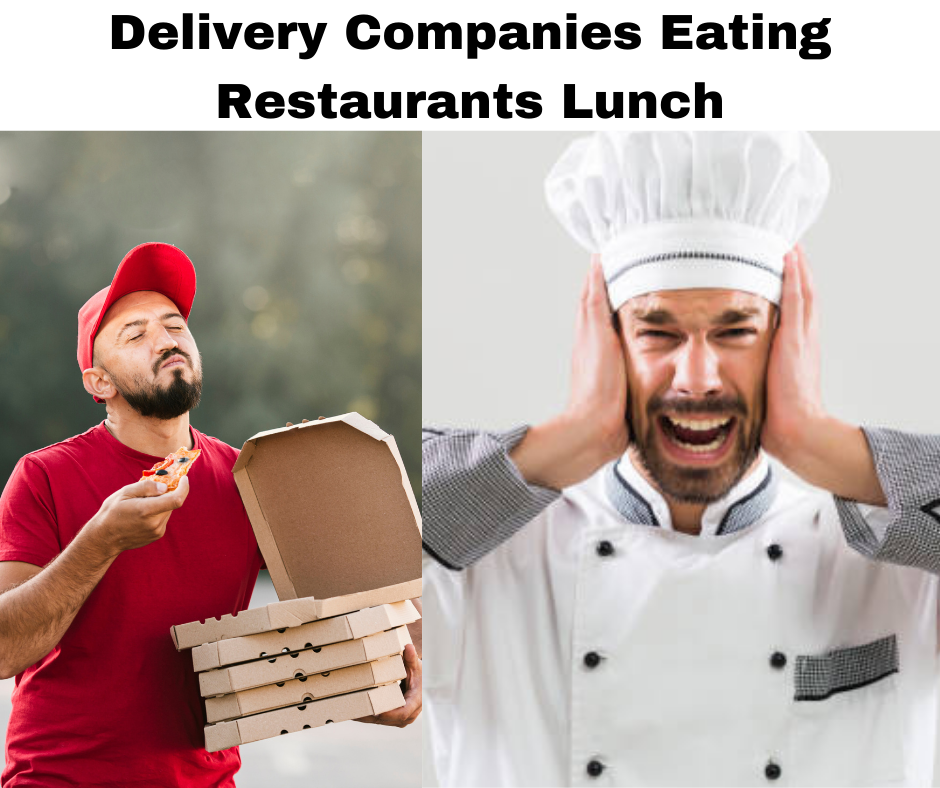The Impact of food delivery consolidation on restaurants, couriers and customers
The food delivery business model by itself has a lot of questions surrounding it. There is no doubt that there is definitely a gap in the market since restaurants need delivery service to meet the growing need of convenience by customers but the question to ask is if there is a market in that gap?
I have seen so many articles talking about consolidation in the food delivery industry in order to set a path to profitability for food delivery startups, but little have I heard the press talking about what this really means to all the stakeholders involve like the restaurants, couriers and customers.
Is no secret that the market and the majority of the press releases are more interested in the interest of the investors in these tech companies and pay little attention to other stakeholders that are directly impacted.
Just to give a background on the current situation, many restaurants dislike food delivery companies due to high fees on restaurants. Also, most courier drivers feel exploited by food delivery companies for not being able to make a minimum wage and lastly, it is definitely no secret that the customers are not loyal to any specific food delivery company and are always in search of better service at a lower price. What then is the fate for these three stakeholders if food delivery companies consolidate. Will restaurants start paying lower fees, or will couriers be able to make more income or will the customer get better offers? These are questions that the mainstream media should ask most of the CEOs running these companies. However, thanks to the fact that we don’t need financial analysts to answer such questions.
The rise of restaurant dependence on delivery companies is threatening the future of the restaurant industry since most delivery companies charge restaurants up to 30% commission on each order. The commission charge has a devastating impact on restaurants being an industry with very small profit margins of an average of 0-15% and has forced many to shut down. Some Restaurant doesn’t include some of their menu items on delivery apps while some increase the price charged for their menu item on the delivery app in order to compensate for the high commission hence making them less competitive.
If every one of these delivery companies is making losses right now, how will consolidation help them and what will the impact be to local restaurants. It is safe to say that consolidation means taking away the leverage restaurants, couriers, and customers have. At the moment many restaurants can negotiate with food delivery companies for lower fees since they can always choose to go to the next competing food delivery company, the same case goes for courier drivers and to the customers. However, with consolidation, this leverage is taken away. The big question now is, what will prevent these food delivery companies not to increase commissions for restaurants and further cut down courier delivery fees per order? Already most restaurants still feel like they are currently in captivity due to the high fees some of the food delivery companies are charging them, what then will be the fate of these stakeholders when their leverage no longer exists when the market is only served by a handful of players. Already, food delivery companies are reportedly using data collected from restaurants to increase profitability by reproducing some of the restaurant’s top-selling items on their ghost kitchen at cheaper prices. What will prevent them to further suppress restaurants, couriers and customers in search of profitability?
It is true to say that consolidation in the food delivery industry will also benefit restaurants in aspects like having single or much fewer devices and systems to work with due to limited suppliers. Are these benefits worth the risk local restaurants, courier drivers and customers face in case of consolidation of food delivery companies?
